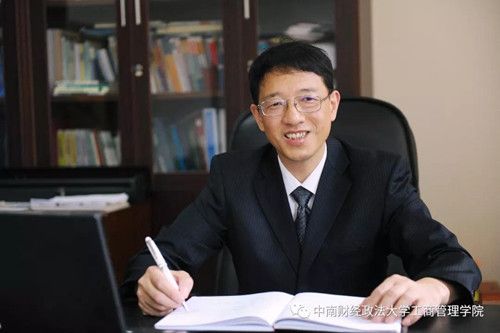News&Events
March is the month for Two Sessions. On March 3, 2019, the second session of the 13th CPPCC National Committee opened in Beijing. On March 5, the second session of the 13th National People's Congress was also held in Beijing. The year of 2019 is the seventieth year of the founding of New China, and also the key year to win the victory of building a well-off society in an all-round way. The two sessions have attracted close attention from all sides. School of Business Administration will keep up with the trend and collect the opinions in the two sessions. From now on, School of Business Administration will invite academics to join us and we will together focus on people's livelihood and the Two Sessions.
Let’s follow our editor and listen to the voice from the industrial and commercial circles.
Prof. Wang Haisu and the Two Sessions
In this year's government work report, it shows a series of policies on promoting the development of small and medium enterprises and stabilizing employment which have attracted great attention from all sides. The coverage and intensity of the policies are not commonly seen over the years. It includes inclusive tax reduction and structural tax reduction, and focuses on reducing tax burden on manufacturing industry and small and micro enterprises, lowering the share borne by employers for urban workers' basic aged-care insurance while keeping the current collection methods unchanged, and allocating 100 billion yuan from the surplus in unemployment insurance funds to provide training for over 15 million people upgrading their skills or switching jobs or industries. This shows that the Chinese government is very clear about the difficulties faced by small and medium-sized enterprises over the years as they are mainly non-state economic sectors, and the government has offered a number of solutions. In my opinion, in addition to role in the GDP, creating jobs, providing tax revenue and promoting technological innovation, there are two invisible social contributions made by small and medium enterprises to the development of society and economy that are less mentioned by the academic circle: one is the consumer surplus provided by the comparative advantage of cost for the middle and low income groups; the other is that it provides on-the-job training to hundreds of millions of new employees in rural and urban areas. Therefore, the related policies in the government work report will obviously be beneficial to the society. We hope that such policies can be effectively implemented, and that small and medium enterprises in China can make greater contribution in a fairer and healthier business environment.
Profile

Wang Haisu
Professor, doctoral supervisor
Director of ZUEL Enterprise Value Research Centre
Vice President of Chinese Industrial Economic Association
Member of the Technical Committee of China Valuation Standards Association
Senior Member of China Appraisal Society
President of Hubei Appraisal Society
Standing Vice-President of Hubei Industrial Economics Association
Consultant of Standing Committee of Wuhan Municipal People’s Congress
Member of Cultural Industry Development Expert Committee of Wuhan Municipal People's Government
Independent Director of Zhongbai Group and Yuexin Health
Former Dean of MAB School, ZUEL (2001-2012)
His Research Are On Industrial Economics, Strategy Management, Asset Valuation, Issues On Smes.
Three Projects Funded By The National Natural Science Foundation Of China
One Project Funded By The National Social Science Fund Of China
Dozens Of Projects Funded By Provincial Government And Enterprises
Four Soft Science Projects Funded By National Intellectual Property Administration.
Provided Advisory Services for Enterprises and Public Institutions Like Panzhihua Iron and Steel Group Corp, Wuhan Iron and Steel Group Corp., C-BONS, Wanxi Medicine, Founder Electronics, China Three Gorges Corporation, Wuhan Asia Heart Hospital, Yellow Crane Tower Park, Wuhan Bus, China Construction Communications ENGRG. Group Corp. Ltd.etc.
Monographs: On Community Cooperative Economy; Research on Property Rights and Asset Assessment of Urban Collective Enterprises; Institutional Innovation of China’s Public Enterprises; Multivariate Mixing-the Only Way to the Reform of State-owned Enterprises; Research on Capitalization of State-owned Intangible Assets; Research on the Restructuring of Local State-owned Enterprises: Theoretical Consideration and Case Analysis of Wuhan Model; Information Imbalance and Impairment of Intangible Assets; Blue Book on Intangible Assets of Listed Companies on GEM in China
Translated work: Research on the Organizational Structure of State-owned Enterprises
Textbooks: Asset Valuation
Published more than 120 articles in journals like Management World, China Industrial Economics, andJournal of Small Business and Enterprise Development






